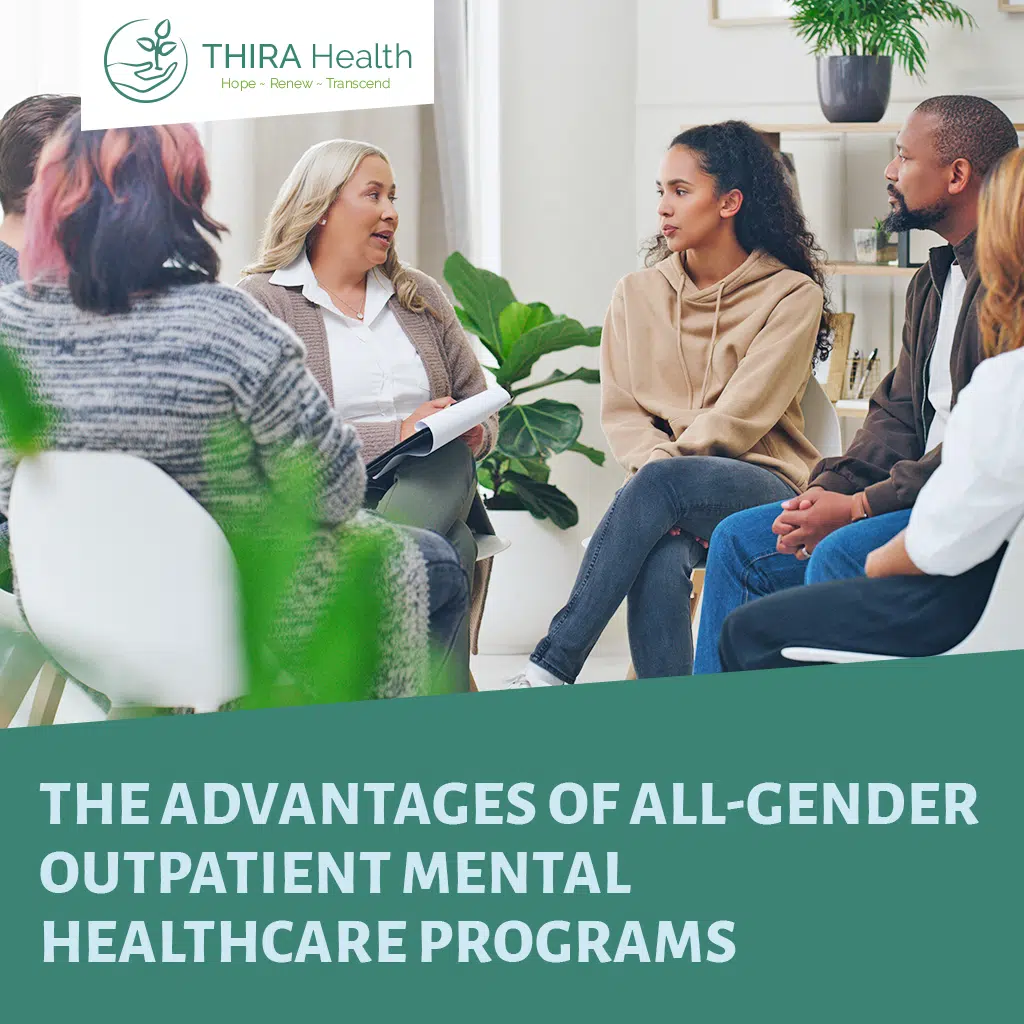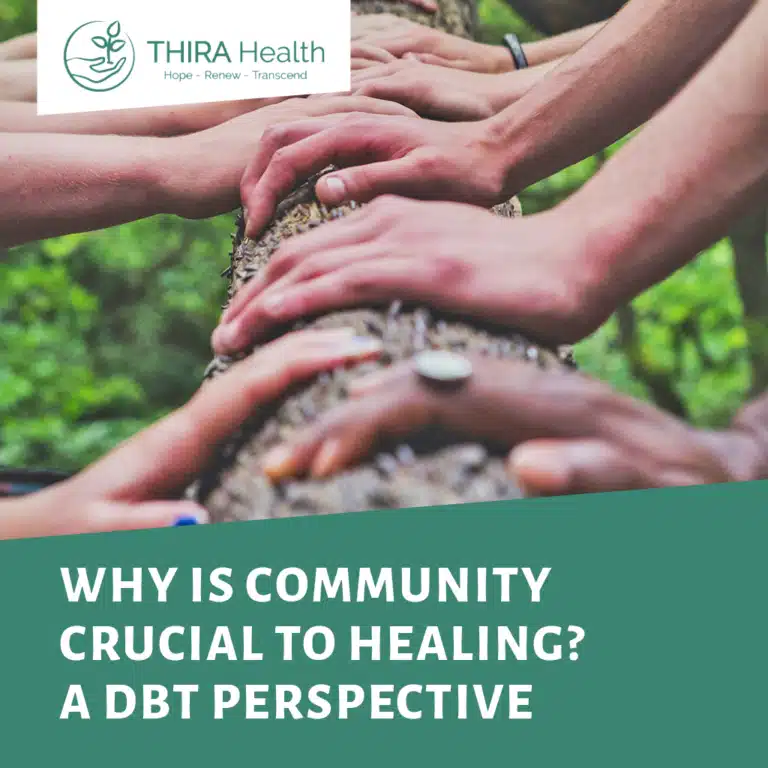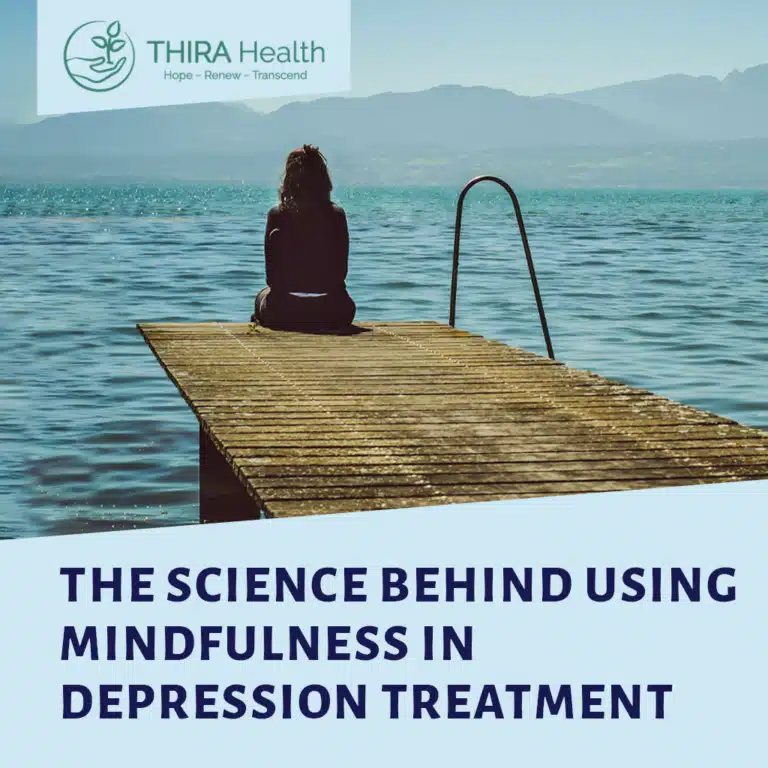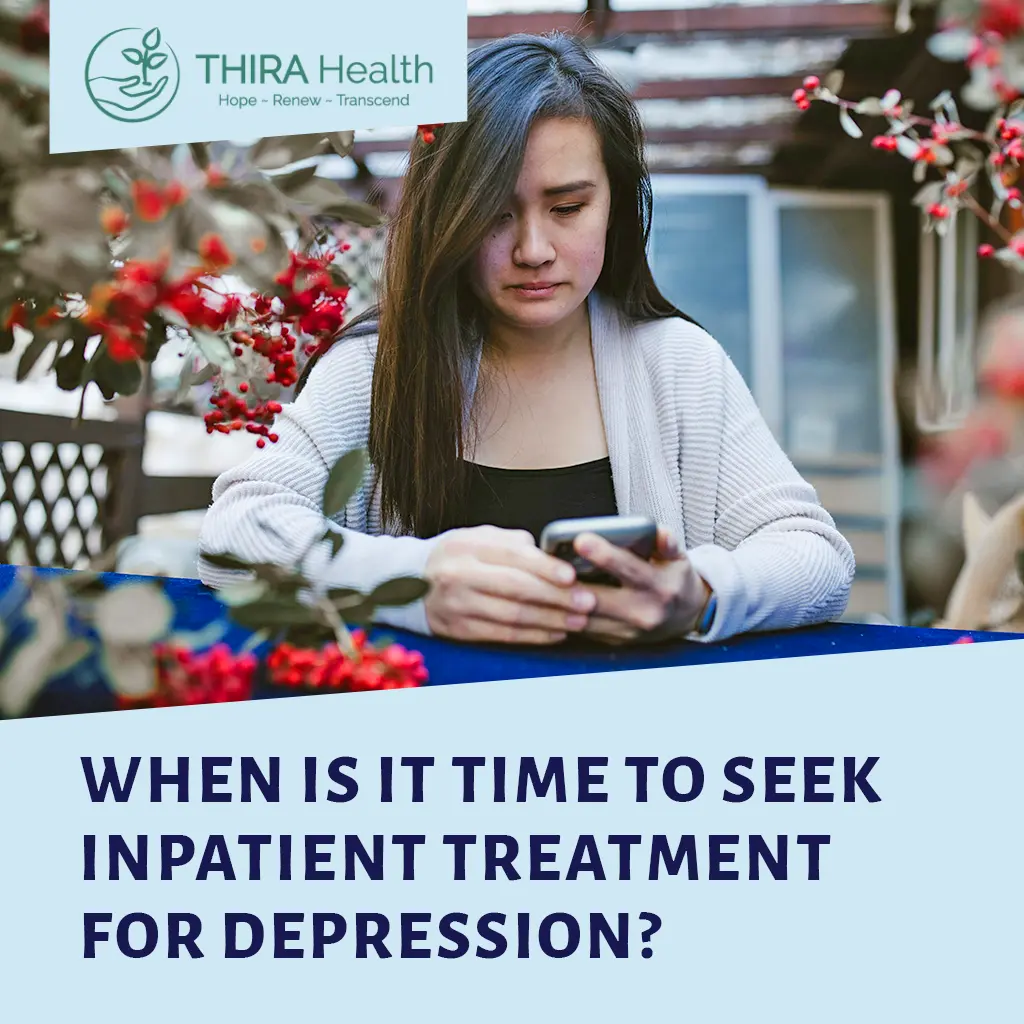At THIRA Health, we’re firm believers in the important role that community plays in helping achieve comprehensive, durable recoveries for patients struggling with conditions like anxiety and depression. Indeed, the remarkable power of a supportive, empathetic communal group is the driving force behind our commitment to women-only environments.
And while we encourage all of our patients to actively participate in post-program communities by continuing to share their progress and challenges with their THIRA cohort, the reality is that social and communal dynamics outside of a controlled therapeutic setting are much more difficult to navigate than those forged within one of our programs.
This is especially true of familial communities. Even if you’re fortunate enough to have a fairly functional, supportive family, the feelings, memories, and personal histories that bubble to the surface when relatives come together can be difficult to deal with, and can take a toll on just about anyone’s mental wellbeing.
The Pride of Unconditional Belonging
Of course, for many people, reconvening with one’s family — especially around the holidays — represents a time for recharging and reconnecting to one’s roots. Even if you don’t return to the house, neighborhood, or city in which you grew up, the sense of “home” that accompanies celebrating Thanksgiving or a religious holiday like Christmas or Hanukkah with your family can be remarkably comforting.
The safety and security — even if only symbolic — of returning “home” has deep evolutionary roots, as in our early days as a species we were highly tribal creatures that lived in close-knit communities typically comprised only of family members and other close connections. One’s home was often quite literally the only place where one could find a fraction of stability and protection from the harsh, threatening conditions of the outside world.
Home also provides many people with a sense of belonging and inclusion that is difficult to find in their everyday lives. Again, if you’re lucky, returning home for the holidays can offer you a brief respite from “keeping up appearances,” from trying to be the most polished version of yourself in your personal and professional life. Your family accepts you for who you are — warts and all — and returning to take your place as an unqualified member of such an intimate group can, quite understandably, elicit feelings of great pride.
The Pain of Old Wounds and New Care Dynamics
All of that being said, spending time with family over the holidays can present a host of challenges, as well. One of the attendant — and for many people, unforeseen — complications of the intimacy of a family group is that the scars of one’s old wounds are always present, even if the wounds have fully healed. Home, your family, and, evolutionarily speaking, especially your mother provide the support system you need to cope with whatever traumas you’ve endured, but this support system’s close association with pain — even the overcoming of pain — can be tough to shake off.
Things become even more complicated as one enters middle age and one’s parents advance into their winter years. For many, one’s mother and/or father often represents the epitome of home, comfort, and safety as one is growing up, and the process of witnessing these once towering figures fall prey to the natural progression of time can be incredibly painful and make one feel utterly powerless.
If a mother starts exhibiting signs of Alzheimer’s, for instance, or a father suffers a stroke and must go through extensive physical therapy, the parent-child care relationship that has existed for decades is immediately — and jarringly — inverted. All of a sudden the parent needs the help and support of the child more than vice versa, and adjusting to this new normal takes a great deal of mental and emotional work.
For most people, reconvening with family over the holidays brings a mix of pride and pain, and it’s entirely normal to struggle with navigating these complex, often inextricable dynamics. Different people prefer different strategies for ensuring that the holidays end up being a positive experience on balance, but if you find yourself overwhelmed at family events over the course of the next couple months, consider trying out some of our tips for self-soothing with your basic senses.







